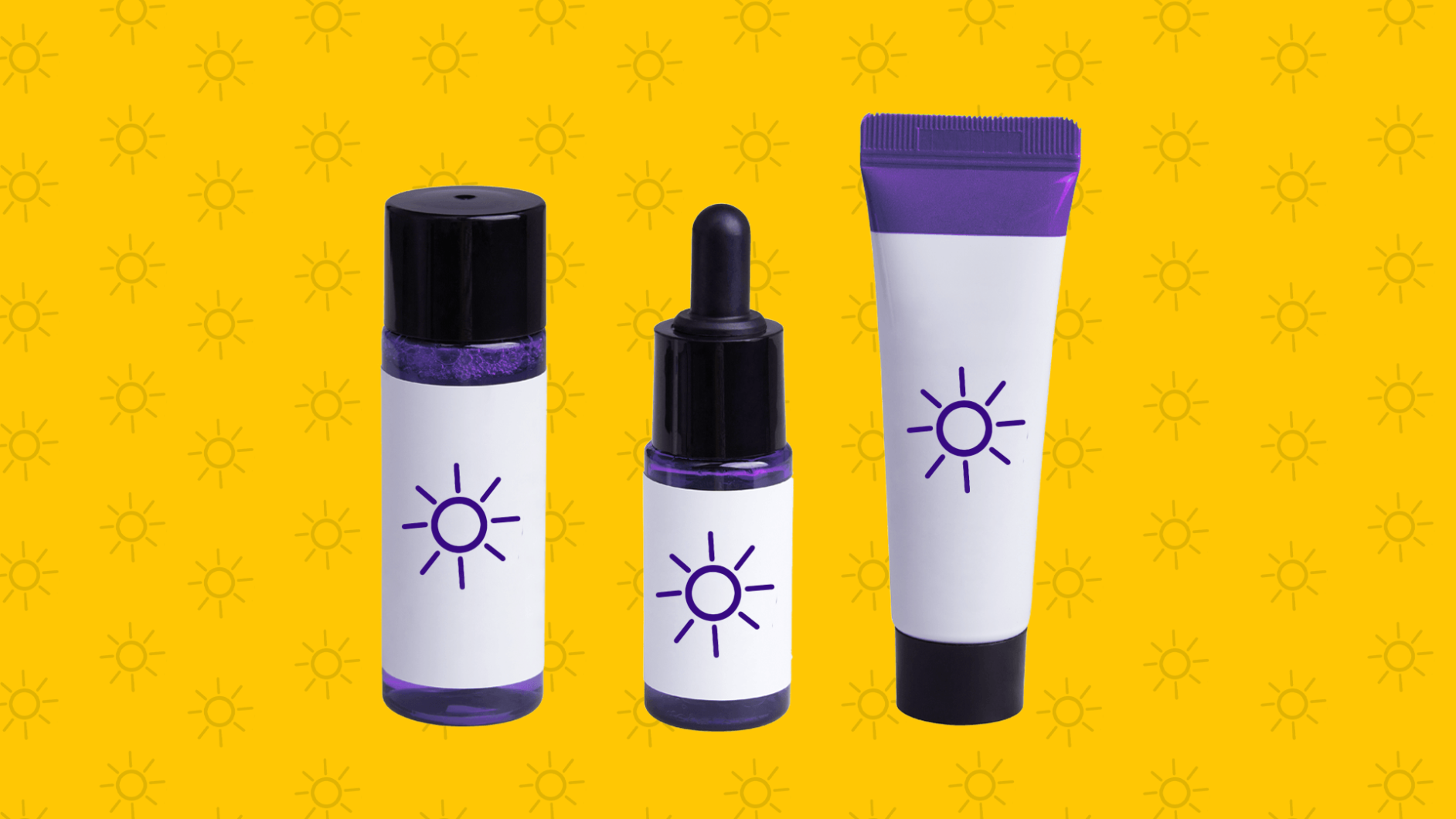Summer is here and even though you’re likely excited to spend time out in the sunshine, your skin might have other ideas. Heat acne and summer rashes can put a damper on your outdoor plans. Acne can be painful, uncomfortable, and make you feel self-conscious. Fortunately, you can prevent heat-induced skin problems and treat them.
Why does heat cause or worsen acne?
You may notice that your pristine springtime skin takes a turn for the worse when the weather changes for summer. “Heat causes people to sweat more and that sweat sits on the skin while mixing with pollutants in the air,” says Anthony Puopolo, MD, the chief medical officer at LifeMD. The accumulation of sweat and dirt can clog your pores, which can lead to summer breakouts.
3 common summer skin problems
There are several common skin problems you may run into as the temperatures rise, not just acne. Figuring out what’s causing your summer skin issue is important because it affects how you treat it.
1. Heat rash
This type of rash often itches or burns at first. Symptoms include:
- Dry, small, red bumps
- Itchy skin
- Inflamed skin
Heat rash is caused by a buildup of heat in one area without ventilation. This leads to sweat trapped on the skin. Effective treatments include topical steroids, lanolin, and calamine lotion.
2. Heat acne
Sometimes called sweat pimples, summer acne, or sweat acne—heat acne may feel sore, or hurt when you touch it. It appears as one or more small, raised red or white fluid-filled bumps. It is caused by sweat or pollutants that clog your pores.
“Benzoyl peroxide and salicylic acid are found over the counter,” says Queen Buyalos, R.Ph., a freelance medical writer. “Both can be used to prevent and treat acne, but be careful—you may be more sensitive to the sun.” Other treatments of heat acne are prescription retinoids and over-the-counter tea tree oil.
3. Allergy rash
Allergy rashes are raised, red, itchy skin that often itches at the onset. If continued exposure to the allergen occurs, the rash spreads or worsens. Allergens can cause a rash with contact (by touching it), consuming it (in the case of food allergies), or breathing it in (as with pollen allergies). Some people are allergic to sunscreen and should consider using mineral sunblock.
“If you are allergic to your sunscreen, read the label to identify the exact ingredient that your sunscreen had,” Buyalos says. “When purchasing a new sunscreen, make sure that you keep away from that ingredient.”
Benadryl, hydrocortisone, or other topical antihistamines can help reduce mild reactions. If you have any systemic reactions, such as swelling or trouble breathing, seek medical attention immediately. You may need to call 911. Certain allergic reactions can be life-threatening.
How to treat summertime breakouts
Fortunately, there are many over-the-counter (OTC) and prescription (Rx) treatments for summertime breakouts and skin irritations. Refer to this table to find the right treatment for you.
| Drug name | Rx or OTC | Indication | How to use | SingleCare savings | Learn more |
| Hydrocortisone | OTC | Allergy, heat rash | Use topically on the affected area as needed | Get coupon | Learn more |
| Benzoyl peroxide | OTC | Heat acne | Use topically on the affected area daily | Get coupon | Learn more |
| Salicylic acid | OTC | Heat acne | Use topically on the affected area daily | Get coupon | Learn more |
| Tea tree oil | OTC | Heat acne | Use topically, daily | Get coupon | Learn more |
| Benadryl | OTC | Allergy | Use topically or take oral medication as needed | Get coupon | Learn more |
| Retinoids | Rx | Heat acne | Follow prescriber instructions | Get coupon | Learn more |
RELATED: Can I use SingleCare on OTC medications?
Preventing summer breakouts
Prevention is key to taming your summer skin and keeping your sunny glow. “Therefore, simply reducing exposure to anything that makes your acne breakout worse, like high humidity heat, can help to prevent future outbreaks,” says Buyalos. Use the following strategies.
- Avoid triggers: For heat rash or heat acne, tight-fitting clothing can be a trigger. Petroleum or mineral oil skin products can also worsen acne. Wearing loose-fitting, weather-appropriate clothing and using non-comedogenic products help prevent summer pimples.
- Wash your face: This is especially important to decrease heat acne. Use a daily cleanser before and after sweating. “Heat breakouts can be prevented by gently washing the face twice per day with a non-comedogenic, oil-free face wash and avoiding touching the skin as much as possible,” says Dr. Puopolo.
- Take allergy medication: If an allergen is your trigger, take an antihistamine before going into situations when you might encounter it and always keep treatment on hand if your allergy is severe when going outdoors. “If you have a sunscreen allergy, try physical or mineral sunscreens, which sit on top of the skin,” says Dr. Puopolo. For persistent allergies, allergy shots can be a long-term cure.
- Practice good mask hygiene: “Wear disposable face masks or wash each cloth mask after every use, “ says Dr. Puopolo. This avoids buildup of pollutants and sweat.
- Stay out of the heat: When in doubt, stay indoors during the hottest part of the day. Keep yourself as cool and comfortable as possible by dressing lightly, hydrating, and seeking cool places when you feel overheated.
By preventing heat-induced skin conditions, you can enjoy your summer to the fullest.











